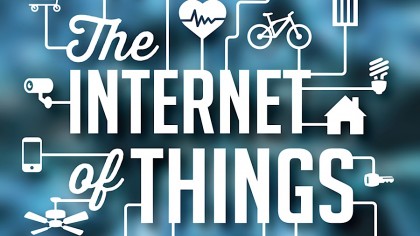What to expect from business tech in 2015
10 areas ripe for change this year

2015 promises to be an exciting year for enterprise technology. Will this be the year when tablets finally out-ship PCs? Can cloud storage get even cheaper? Who will hackers target next?
Judging from the four quarters already behind us, the year to come will certainly be chock full of new challenges for companies of all shapes and sizes. Journey with us now as we polish our crystal ball in an effort to get a clearer look at the next 12 months ahead and how they might impact key areas of technology.

Tablets at work
Last summer, Gartner predicted 2015 would be the year tablets finally outsell traditional desktop and laptop computers, achieving shipments of 321 million units as PCs declined to only 262 million units.
While it's too early to know for sure if that prediction will pan out, there is little doubt companies are favoring the adoption of tablets and smartphones, which offer greater mobility and cross-platform support for applications. With the right enterprise-connected applications, employees can be more productive on the go, especially when Wi-Fi and cellular data connectivity is factored into the equation.
Among the companies placing big bets on tablets this year are JPMorgan Chase & Co. (via BizJournals), who will begin testing tablets in many branches as a faster way for customers to open accounts and make transactions without having to stand in line waiting for a teller window to open up.
Tablets should also get a big boost in 2015 with the arrival of a touch-enabled version of Microsoft Office for Windows and Android, nearly a year after Redmond debuted the software on Apple's market-leading iPad.

Internet of (software) Things
It's little surprise the internet has gone from simply connecting computers and mobile devices to almost everything else in our lives. According to recent IDC data, the so-called "Internet of Things" is expected to connect as many as 30 billion items by 2020, becoming a potential $3.04 trillion (about UK£1.96T, AU$3.74T) market for businesses in the process.
Are you a pro? Subscribe to our newsletter
Sign up to the TechRadar Pro newsletter to get all the top news, opinion, features and guidance your business needs to succeed!
Of course, those impressive figures assume vendors will succeed in finding creative ways to integrate products that consumers will actually want to own and use. Research firms appear to be pinning these hopes and dreams on more nimble startups and smaller companies, rather than larger, more traditional firms.
Analysts predict all of these internet-connected gadgets will likely strain IT networks over the next three years, consuming what has previously been excess storage capacity. One burgeoning market is likely to come from "smart cities" as more local governments buy into the advantages of technology.
The biggest change for the Internet of Things in 2015, however, could wind up being less about hardware: At least one venture capitalist sharing predictions with Forbes anticipates that companies will begin focusing more on the software driving the hardware, rather than the actual "things" themselves.

Data security gets personal
From Target to Heartbleed to Sony Pictures, 2014 will likely go down as a banner year for hackers, who made headlines around the world for their devious and generally expensive antics. Security experts anticipate the worst may still be yet to come, however.
Web sense (PDF link) predicts healthcare providers could become a prime target for IT attacks this year, along with the industrial sensors being used to connect such businesses to the Internet of Things. Older open source code is also expected to come back to haunt companies with further vulnerabilities yet to be discovered.
Although financial information would appear to be the most high profile target for many hackers, analysts say our personal data – Social Security numbers, for example - is likely to become far more attractive for digital thieves. Computerized patient data and the personal details consumers provide when applying for credit cards or loans have also been cited as evolving targets.